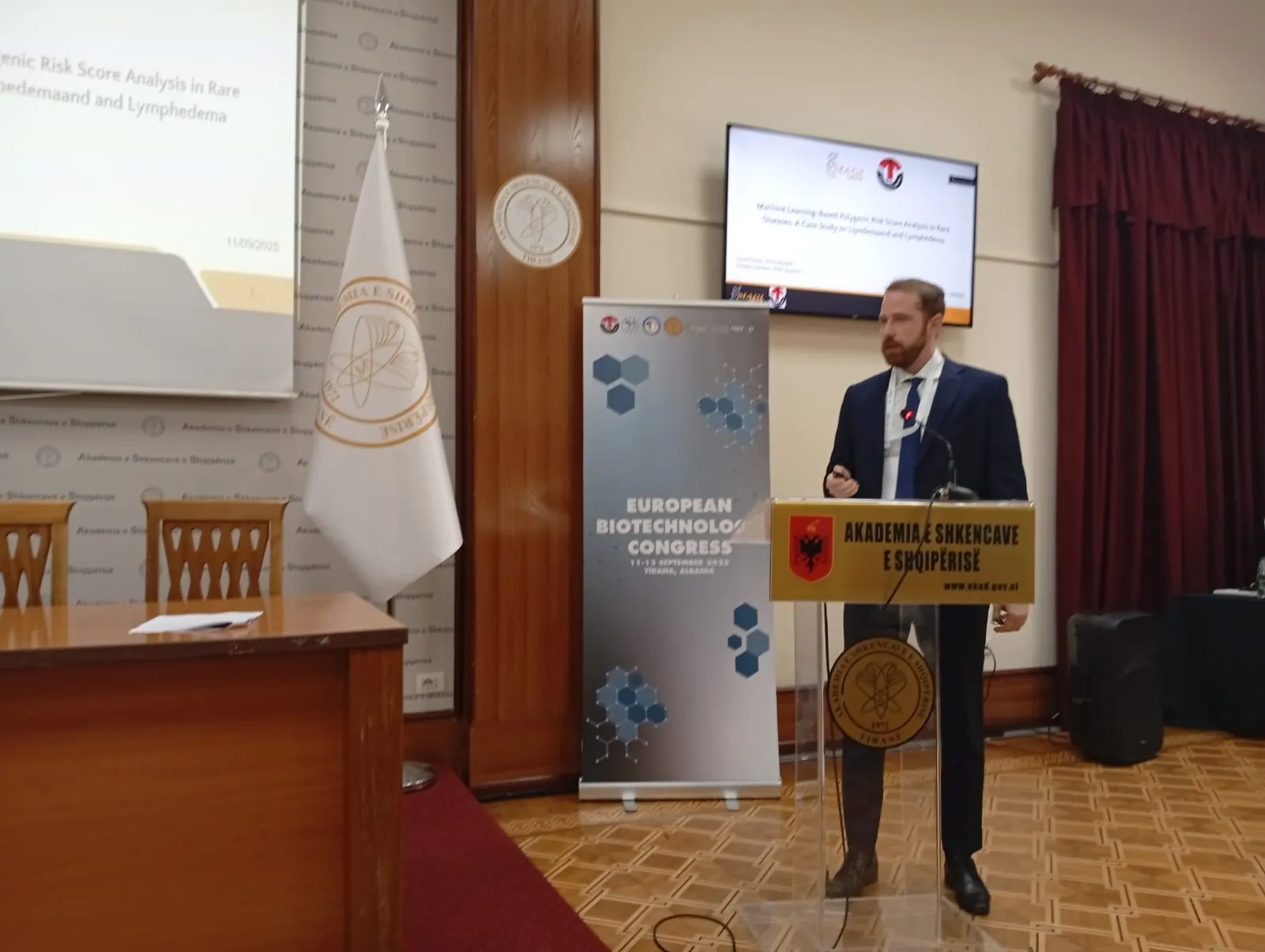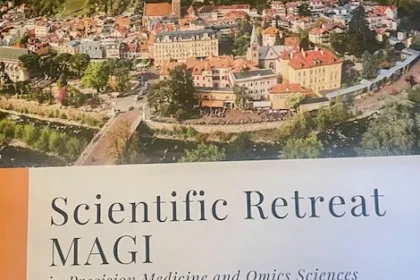Introduction
The MAGI Group, coordinated by Dr. Matteo Bertelli (Italy), and its regional branch, MAGI Balkan (Albania and the Balkans), are celebrating ten years of scientific activity, education, and international networking this year.
Since 2015, MAGI has promoted innovative projects in the fields of bioinformatics, genomics, metabolomics, microbiomics, and machine learning applied to life sciences, developing advanced tools for the analysis of complex biological data and their clinical and experimental interpretation. MAGI Balkan, established as the regional extension of the group, aimed to strengthen the theoretical and practical training of university students by offering advanced courses in biotechnology and applied laboratory sessions.
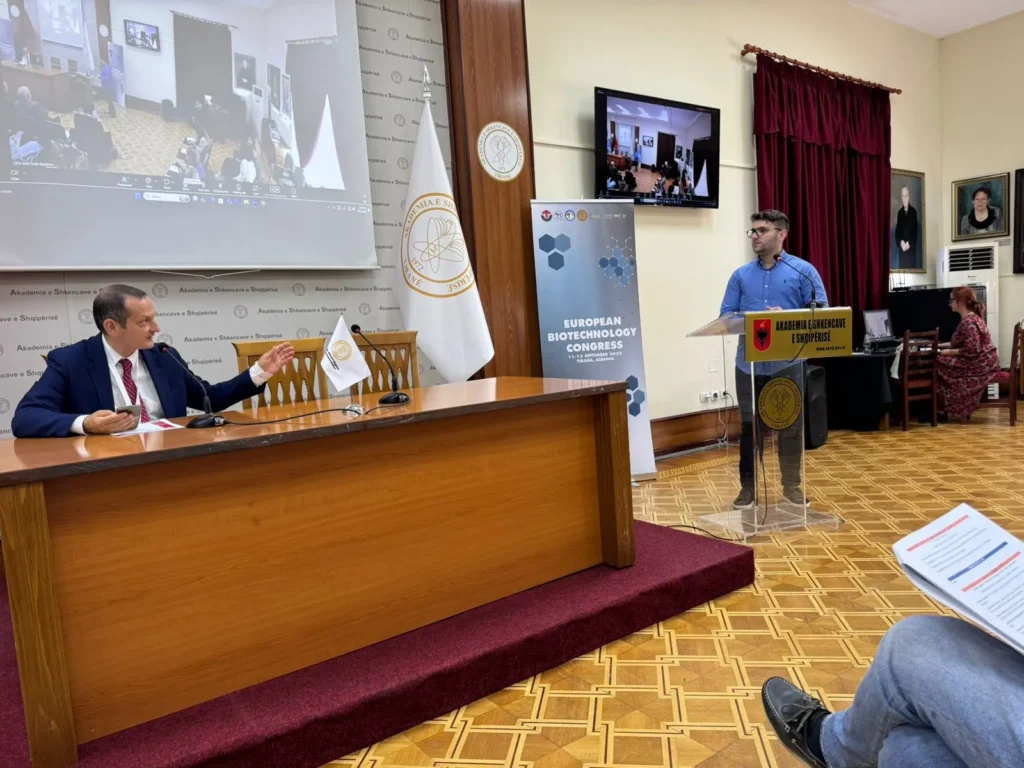
In 2025, both branches participated in the European Biotechnology Congress 2025 (EBTNA), organized by LAL (Local Albanian Laboratory) in Tirana from September 11 to 13, as part of the celebration of MAGI Balkan’s tenth anniversary.
EBTNA 2025: Scientific Society and Congress
EBTNA (European Biotechnology Network Association) is an international scientific society dedicated to promoting biotechnology, applied research, and the training of young researchers. The 2025 congress, hosted by the University of Tirana, offered a rich program of plenary sessions, parallel sessions, and poster presentations, fostering integration between universities, research centers, and biotech industries.
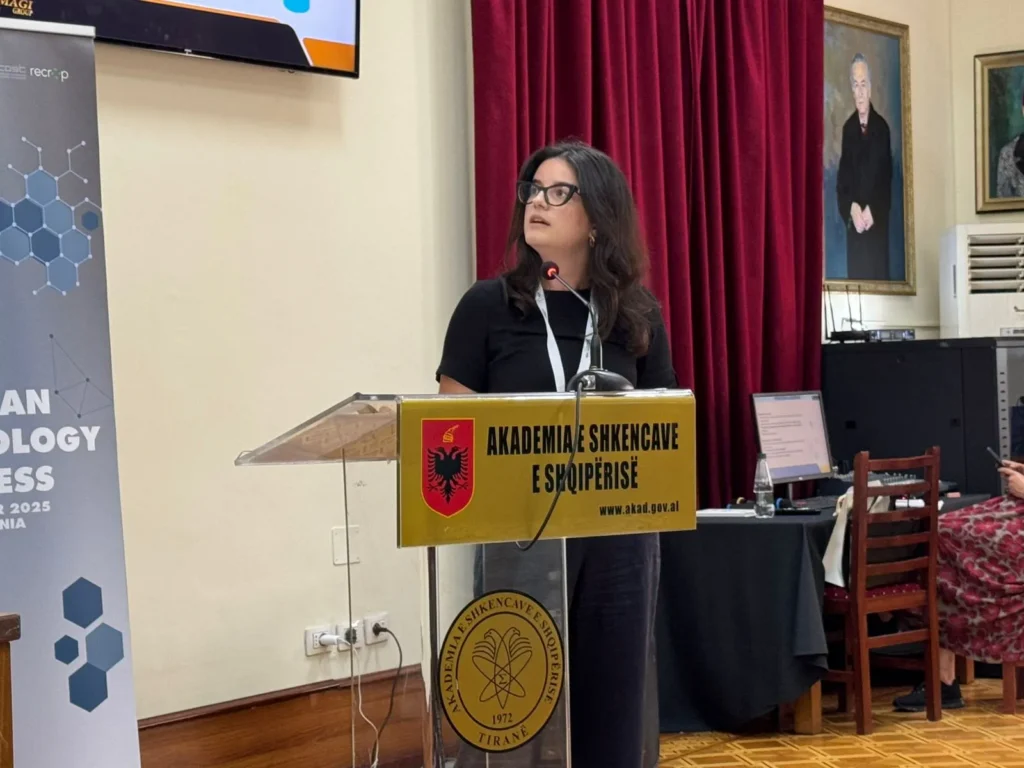
The official opening on September 11 featured the participation and speeches of several prominent institutional figures:
- Prof. Ariola Bacu (Albania), President of the EBTNA 2025 Congress
- Acad. Skënder Gjinushi (Albania), President of the Academy of Sciences of Albania
- Prof. Oscar Vicente Meana (Spain), Vice President of EBTNA
- Mr. Arian Jaupllari (Albania), Deputy Minister of Agriculture and Rural Development
- Prof. Xheladin Dracini (Albania), Rector of the Medical University of Tirana
- Prof. Eglantina Kalluçi (Albania), Dean of the Faculty of Natural Sciences, University of Tirana
- Dr. Matteo Bertelli (Italy), President of MAGI Group
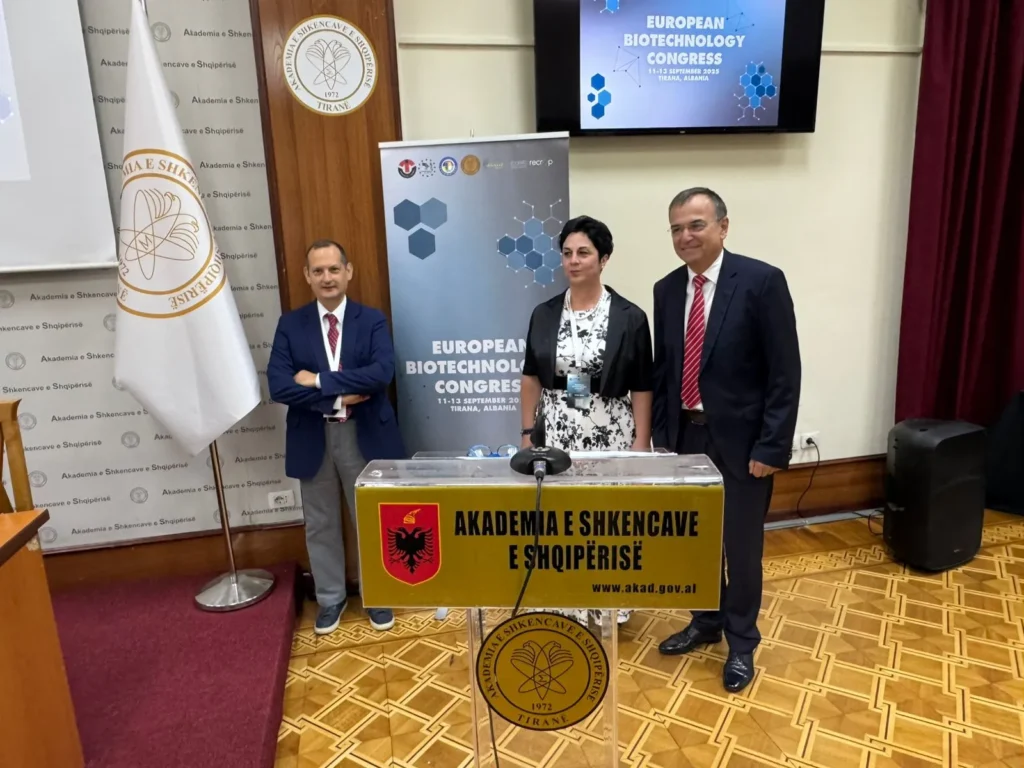
The plenary sessions addressed essential topics, including:
- Acad. Prof. Anila Hoda (Albania): “Biotechnology for Sustainable Development in Albania’s and Kosova’s Livestock and Aquaculture”
- Prof. Anila Babameto-Laku (Albania): Genomics for diagnosis and treatment of rare diseases
- Prof. Bashkim Ziberi (North Macedonia): Nanoparticles for oncological radiotherapy
- Prof. Burim Ametaj (Canada): Development of probiotic solutions as alternatives to antibiotics
- Prof. Hysen Bytyqi (Kosovo): Innovation and accessibility in biotechnology
Other talks explored microbiomes, portable biosensors, CAR-T therapy, and oncological proteomics, providing a comprehensive, multidisciplinary overview of contemporary biotechnology.
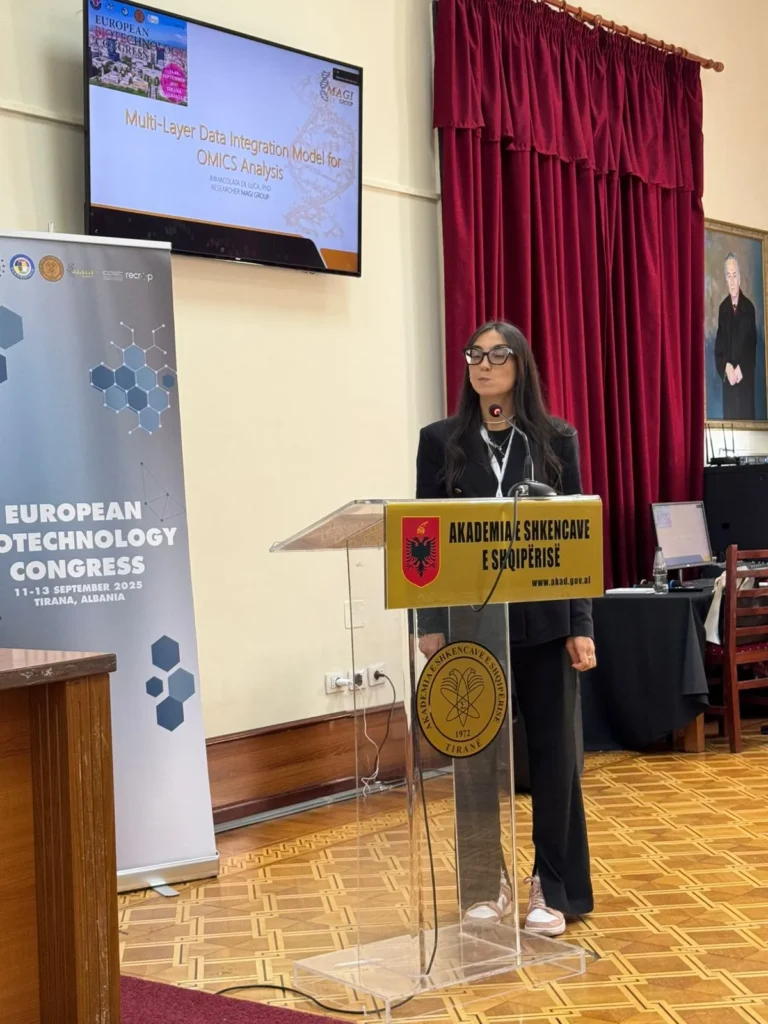
Parallel Session 1 – Medical Biotechnology: MAGI Contributions
The tenth anniversary of MAGI Balkan was celebrated during Parallel Session 1, dedicated to Medical Biotechnology, with high-level scientific presentations:
- Ornela Gordani (Albania): Machine learning algorithm for Polygenic Risk Score
- Luca Ferrari (Italy): Application of machine learning in anorexia, lipedema, and lymphedema
- Jurgen Kaftalli (Albania): Integration of ML algorithms in ACMG classification of genetic variants
- Sara Feizyab (Iran) and Matteo Bertelli (Italy): Multivector embedding for bioinformatic analysis of genomic data
- Kristjana Dhuli (Albania): In vivo evaluation of natural molecules in Drosophila melanogaster
- Immacolata De Luca and Kevin Donato (Italy): Multilayer models for integration of complex omic data
Subsequent sessions addressed biosensors and nanobiotechnologies, biocatalysis, and biopolymers, with international contributions from Shimshon Belkin (Israel), Gal Carmeli (Israel), and Abraham Paul (Germany).
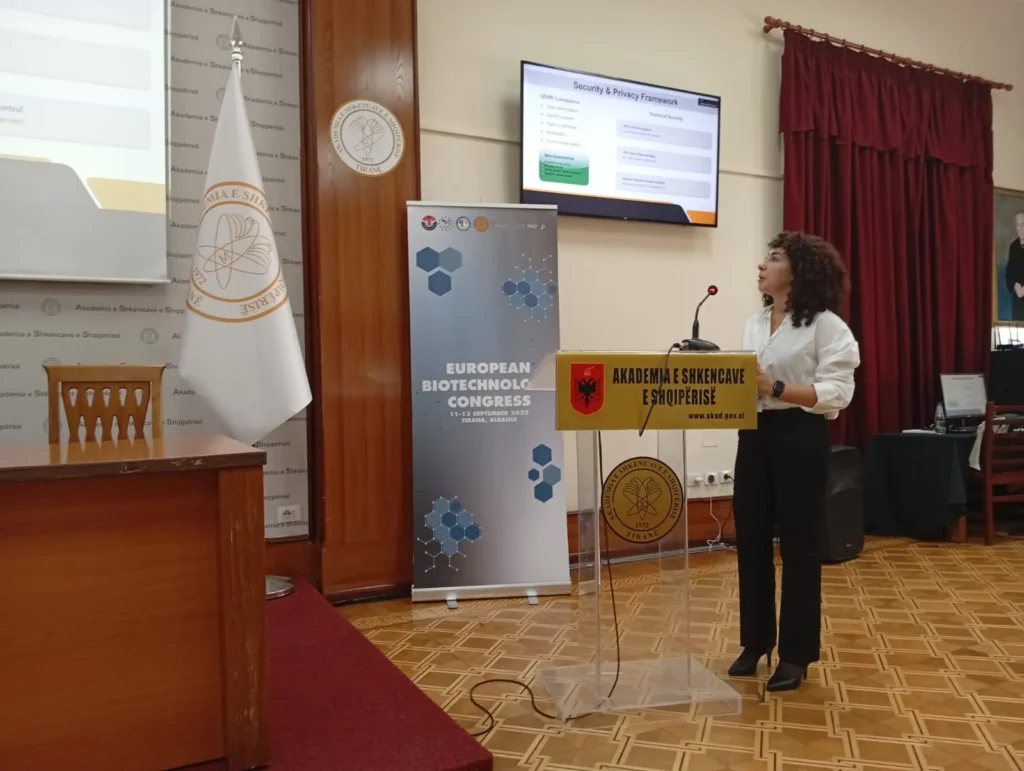
MAGI Balkan: Scientific Training and Laboratories
During the congress, MAGI Balkan organized an advanced biotechnology course for university students, combining theoretical lectures and practical laboratory sessions at its regional facility. Students developed skills in laboratory protocols, data analysis, and the practical applications of biotechnology. This course was a central part of the tenth anniversary celebrations of MAGI Balkan, reinforcing the link between academic education and applied research.
The success and continuous growth of MAGI Balkan over the past decade owe much to the dedicated leadership of Prof. Natale Capodicasa, the local director of MAGI in Albania. Prof. Capodicasa has worked with exceptional commitment to the development of MAGI Balkan as a scientific and educational laboratory, balancing his academic duties at the university with his responsibilities at MAGI.
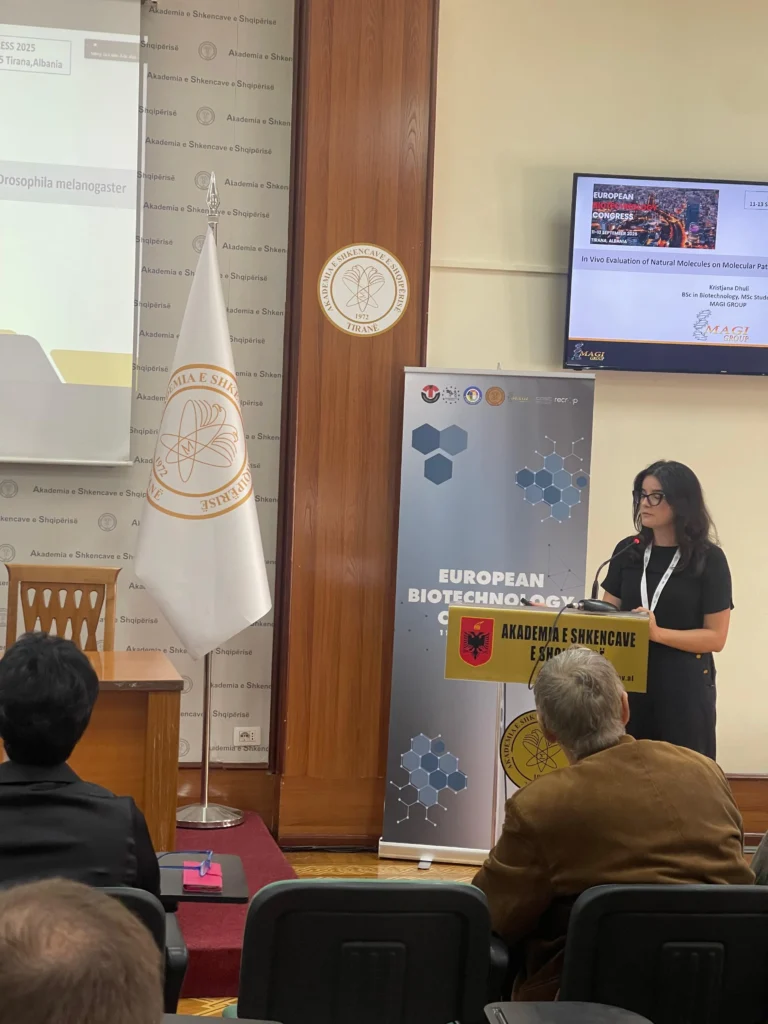
Equally crucial has been the contribution of his Albanian wife, a highly talented professional in the field of communication and institutional relations, whose dedication and expertise have greatly supported the group’s integration into the local scientific and academic community.
Interdisciplinary Meetings
MAGI participated in a working lunch with teams from the Faculties of Mathematics and Physics of the University of Tirana — an opportunity for scientific exchange and planning future interdisciplinary collaborations. These moments highlighted the group’s integrated approach, combining biotechnology, mathematics, and physics in shared projects.
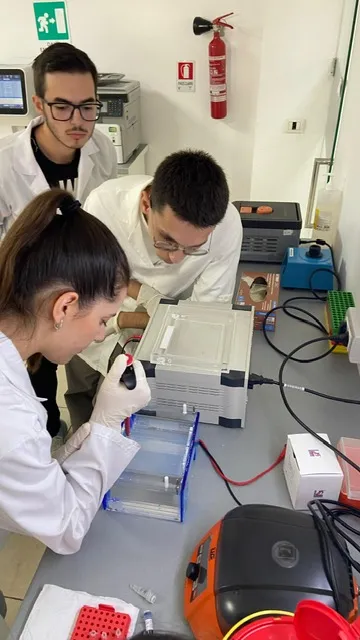
Astronomical Observations: Vega and the Moon with a Scientific Approach
On the evening of September 13, participants had the opportunity to carry out astronomical observations using a telescope. The star Vega (α Lyrae) was observed as an example of an A0V-type star, located about 25 light-years away, with a luminosity approximately 40 times that of the Sun and a surface temperature of about 9,600 K. Its rapid rotation causes significant polar flattening and equatorial bulging, making it an interesting object for the study of stellar dynamics and planetary formation.
The waxing phase of the Moon was also observed, with focus on the terminator line to highlight surface features such as elevations, craters, and morphological details. Images were captured using smartphones connected to the telescope, combining scientific observation with accessible imaging techniques. These activities offered students and researchers the chance to link astronomical observations with scientific method and hands-on learning.
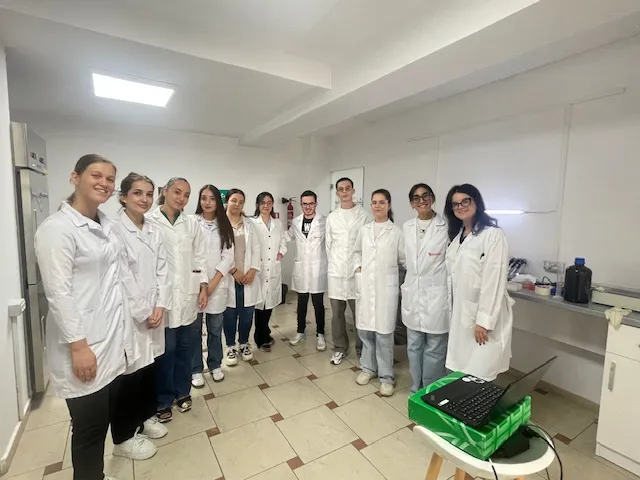
Prof. Ariola Bacu (Albania), President of the Congress, emphasized the importance of such interdisciplinary events that integrate biotechnology, biophysics, and bioinformatics, stimulating scientific curiosity and fostering dialogue between disciplines.
